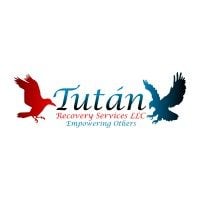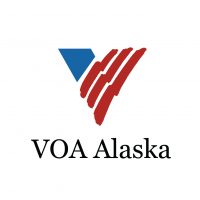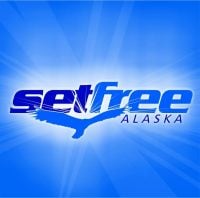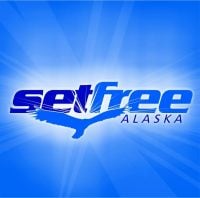Narcotic Drug Treatment Center - NDTC
Drug Rehab Center in Anchorage, Alaska
NDTC is a certified and experienced facility that provides comprehensive and personalized addiction treatment services, including evidence-based practices, individual and group therapy, educational programs, family support and aftercare, and referrals to community resources.
About Narcotic Drug Treatment Center - NDTC in Alaska
Narcotic Drug Treatment Center - NDTC is a well-established treatment facility located in Anchorage, Alaska. They are accredited and recognized by the Substance Abuse and Mental Health Services Administration (SAMHSA), the Commission on Accreditation of Rehabilitation Facilities (CARF), and hold a valid State License. This demonstrates their commitment to providing high-quality care and adhering to industry standards. NDTC specializes in treating individuals struggling with alcoholism, opioid addiction, substance abuse, drug addiction, and mental health issues. They offer a range of services, including detox, drug rehabilitation, outpatient programs, and aftercare support levels of care.
NDTC provides comprehensive services to address addiction and substance abuse. Their programs are designed to help individuals overcome alcoholism, opioid addiction, substance abuse, drug addiction, and mental health challenges. They offer a safe and supportive detoxification process to help clients effectively manage withdrawal symptoms. Following detox, clients can access their drug rehabilitation programs which include evidence-based therapies and counseling sessions. NDTC also provides outpatient programs that allow individuals to receive ongoing support while maintaining their daily routines. Additionally, they offer aftercare support to ensure long-term recovery success. With their diverse range of services, NDTC is dedicated to helping individuals overcome addiction and achieve better mental health.
Genders
Ages
Modality
Additional
Accreditations
State License
SAMHSA

CARF
The Commission on Accreditation of Rehabilitation Facilities (CARF) is a non-profit organization that specifically accredits rehab organizations. Founded in 1966, CARF's, mission is to help service providers like rehab facilities maintain high standards of care.
Conditions and Issues Treated
Substance abuse is a severe problem that affects many people in Anchorage, AK. It is characterized by the excessive and inappropriate use of drugs, including alcohol, medications, and illicit drugs. Substance abuse can lead to physical or psychological dependence and affect social life and relationships. Treatment options include medications, counseling sessions, behavioral therapy, and group therapy. If you are suffering from substance abuse, contact for the latest treatments available.
Opioid addiction is when someone becomes addicted to opioids. This can happen quickly due to any opioid use. Opioid withdrawal can be uncomfortable and lead the user to continue using even if they want to quit. It’s best to receive inpatient treatment for detoxification.
Even if a person doesn’t need inpatient treatment, it’s recommended to start rehabilitation or at least some kind of outpatient treatment. This is because the withdrawal symptoms from opioids can be uncomfortable and unpleasant, to the point that a person could end up using again or worse.
Detoxification should be done to break the physical addiction of opioids. This can be done with opioid replacement therapy, medication-assisted therapy, or a more traditional detoxification program. Intensive outpatient treatment is a form of addiction care that allows patients to continue living at home while undergoing treatment. This type of care is appropriate for patients who have been treated in residential treatment programs. Intensive outpatient programs include regular visits to the facility providing therapy, and patients gradually return to their routine life. IOP benefits most when patients have a supportive family member or friend to help them recover.
The first step to getting into an intensive outpatient program is to attend a detoxification facility. Detoxification facilities are designed to remove substances from the body safely. The patient will attend sessions designed to help them understand their addiction and its impact on their lives. While in an intensive outpatient program, therapy sessions are scheduled three to five times per week, with the patient attending no more than two sessions in one day.
Levels of Care Offered
This center offers a variety of custom treatment tailored to individual recovery. Currently available are Detox, Drug Rehab, Outpatient, with additional therapies available as listed below.
Detox is the process by which toxins are removed from the body. In substance abuse, detox refers to the process of getting rid of the drugs that are already there in the system once the patient stops its further intake. Detox is the initial step in the recovery process. The physiological dependence on the drug over a period can lead to withdrawal symptoms.
Depending on the severity of the symptoms, the detox process is managed either medically or clinically. While Medically assisted detox relies on the usage of specific medicines, clinal or social detox relies on providing emotional and psychological support to the patient.
Outpatient treatment consists of counseling and therapy sessions. The outpatient treatment process begins with the addict’s initial detox period, lasting about ten days. Outpatient treatment is used for those who are at moderate risk for “slipping back” into the addiction. It is also used for those who are not currently experiencing any side effects from withdrawal, can handle social pressure, have a stable living environment, and have a good support system.
Therapies & Programs
Individual Therapy is a crucial component of addiction recovery. Therapists work with patients to identify the root of their addiction and figure out how to better handle the issues that led to them using drugs. Individual Therapy is one on one sessions where people meet with their therapist. Individual therapy provides a safe space for people to open up and discuss personal and sensitive topics which they may not feel comfortable discussing in a group setting.
In this type of therapy, therapists can develop specific solutions for each patient, which helps speed up their recovery process. In addiction recovery, therapy is a crucial part. It allows patients to go deep into their core issues and discover how those problems can be better handled now. Therapy can be performed in individual sessions as well as group settings. In individual therapy for addiction, the patient meets with the therapist one-on-one to focus on the underlying issues of addiction and come up with solutions to prevent future abuse.
Group Therapy is employed by drug treatment centers like Narcotic Drug Treatment Center - NDTC to provide the recovering addict with a platform to talk about their feelings and experiences. It also provides for an opportunity to learn from other addicts who have successfully overcome their addiction. It is recommended that all group members be recovering addicts for this type of therapy to work.
This type of therapy involves the use of a variety of therapeutic techniques to help addicts recover from past traumas that might have triggered their substance abuse. During these sessions, therapists will work with the addict to address painful memories and learn how to cope effectively with stressors as they arise.
During these types of sessions, therapists will typically focus on three main goals:
- Identifying and expressing painful emotions associated with past traumas.
- Reducing the effects of stress on an addict’s life by developing more effective coping mechanisms.
- Developing healthy ways of thinking about stressful situations that can help addicts avoid substance abuse issues in the future.
This type of therapy is typically used in conjunction with other types of addiction treatment services. By identifying and dealing with the root cause of addiction, most addicts can overcome their cravings and prevent relapse once they leave rehab.
Many different types of addiction treatment services exist to help addicts safely get sober, but it’s important for recovering individuals to find a therapist or support group that will help them address the root cause of their addiction.
Cognitive Behavioral Therapy (CBT) is an approach and method in psychotherapy. Narcotic Drug Treatment Center - NDTC asks people to investigate how their thoughts, including habitual, harmful, and inaccurate ways of thinking, affect behaviors. CBT is based on the idea that rigid, inflexible ways of thinking cause people to have a limited ability to cope with stress, which leads to emotional distress.
Likewise, CBT helps people identify maladaptive behaviors and replace them with more positive behaviors. It makes you look at the way you perceive something and ask: Is this a realistic belief? CBT asks people to look at the role of behaviors and emotional responses and how they may be distressing in one’s life. The goal of CBT is to change the way people think and behave to achieve a more balanced, healthier lifestyle.
Moreover, CBT has been shown to reduce some types of anxiety disorders, depression, and symptoms related to thoughts or actions that are considered harmful.
Good nutrition can be difficult for people recovering from addiction because they may not feel like eating while they are experiencing the physical and emotional side effects of detoxing.
Nutrition therapy can help addicts in Alaska in the following ways:
- Helps individuals to understand which foods promote good health and support recovery that will assist them during detox
- Provides guidance and education about how to maintain a nutritious diet so they can stay healthy during recovery
- Improves their overall health and well-being, which can reduce the severity of substance withdrawal symptoms.
Nicotine replacement therapy treats nicotine addiction using external sources of nicotine, such as patches or gum to substitute for nicotine. This allows people trying to quit smoking to get their desired dose of nicotine without actually having to smoke cigarettes. There are several different types of NRT devices on the market now, and it is important to talk to your doctor about the best kind for you.
Payment Options Accepted
For specific insurance or payment methods please contact us.
Is your insurance accepted?
Ask an expert, call (888) 674-0062
Additional Details
Specifics, location, and helpful extra information.
Anchorage, Alaska 99501 Phone Number(907) 276-6430 Meta DetailsUpdated November 25, 2023
Staff Verified
Narcotic Drug Treatment Center - NDTC Patient Reviews
There are no reviews yet. Be the first one to write one.
Anchorage, Alaska Addiction Information
Alaska is enduring a multi-faceted drug and alcohol abuse problem. Heroin-related overdoses are 50% higher in Alaska than in the rest of the United States. Methamphetamine use is a major contributing factor to violent crime in Alaska. More than 60,000 Alaskans need some sort of treatment for substance abuse and/or addiction.
9,500 people struggle with addiction to drugs or alcohol in Anchorage. The city has been hit hard by the opioid epidemic. The most commonly abused drugs include marijuana, cocaine, methamphetamine, and prescription drugs. Between 2012 and 2016, there was a 64% increase in the number of deaths due to drug overdoses. Several treatments are available in Anchorage. Participants receive around-the-clock care and supervision; they also have access to a variety of therapy.
Treatment in Nearby Cities
- Yakutat, AK (365.2 mi.)
- Copper Center, AK (158.7 mi.)
- Tok, AK (265.5 mi.)
- Kenai, AK (65.1 mi.)
- Perryville, AK (495.6 mi.)
Centers near Narcotic Drug Treatment Center - NDTC
The facility name, logo and brand are the property and registered trademarks of Narcotic Drug Treatment Center - NDTC, and are being used for identification and informational purposes only. Use of these names, logos and brands shall not imply endorsement. RehabNow.org is not affiliated with or sponsored by Narcotic Drug Treatment Center - NDTC.








